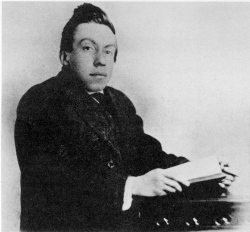Page 438 https://books.google.com/books?id=-F8wAQAAMAAJ&pg=PA438. Quote republished in " Left and Right: The Prospects for Liberty http://alexpeak.com/twr/lar/1/1/2/," Left and Right: A Journal of Libertarian Thought 1, no. 1 (Spring, 1965), p. <span class="plainlinks"> 22 http://alexpeak.com/twr/lar/1/1/2/#p22</span>.
"Youth" (1912), II
Famous Randolph Bourne Quotes
Page 438 https://books.google.com/books?id=-F8wAQAAMAAJ&pg=PA438. Quote republished in " Left and Right: The Prospects for Liberty http://alexpeak.com/twr/lar/1/1/2/," Left and Right: A Journal of Libertarian Thought 1, no. 1 (Spring, 1965), p. <span class="plainlinks"> 22 http://alexpeak.com/twr/lar/1/1/2/#p22</span>.
"Youth" (1912), II
¶23. Published under "Psychology of the State," The State https://mises.org/library/state (Tucson, Arizona: See Sharp Press, 1998), p. 14.
"The State" (1918)
Page 441 https://books.google.com/books?id=-F8wAQAAMAAJ&pg=PA441. Quote republished in " Left and Right: The Prospects for Liberty http://alexpeak.com/twr/lar/1/1/2/," Left and Right: A Journal of Libertarian Thought 1, no. 1 (Spring, 1965), p. <span class="plainlinks"> 22 http://alexpeak.com/twr/lar/1/1/2/#p22</span>.
"Youth" (1912), III
Page 433 https://books.google.com/books?id=-F8wAQAAMAAJ&pg=PA435.
"Youth" (1912)
“War is the health of the State.”
¶35. Published under "Psychology of the State," The State https://mises.org/library/state (Tucson, Arizona: See Sharp Press, 1998), p. 21.
"The State" (1918)
Context: All of which goes to show that the State represents all the autocratic, arbitrary, coercive, belligerent forces within a social group, it is a sort of complexus of everything most distasteful to the modern free creative spirit, the feeling for life, liberty, and the pursuit of happiness. War is the health of the State. Only when the State is at war does the modern society function with that unity of sentiment, simple uncritical patriotic devotion, cooperation of services, which have always been the ideal of the State lover. … How unregenerate the ancient State may be…is indicated by the laws against sedition, and by the Government's unreformed attitude on foreign policy.
Randolph Bourne Quotes about war
“We cannot crusade against war without crusading implicitly against the State.”
¶28. Published under "Psychology of the State," The State https://mises.org/library/state (Tucson, Arizona: See Sharp Press, 1998), pp. 17–18.
"The State" (1918)
Context: It cannot be too firmly realized that war…is the chief function of States. … War cannot exist without a military establishment, and a military establishment cannot exist without a State organization. War has an immemorial tradition and heredity only because the State has a long tradition and heredity. But they are inseparably and functionally joined. We cannot crusade against war without crusading implicitly against the State. And we cannot expect, or take measures to ensure, that this war is a war to end war, unless at the same time we take measures to end the State in its traditional form. … [W]ith the passing of the dominance of the State, the genuine life-enhancing forces of the nation will be liberated. … No one wlil deny that war is a vast complex of life-destroying and life-crippling forces. If the State's chief function is war, then it is chiefly concerned with coordinating and developing the powers and techniques which make for destruction. And this means not only the actual and potential destruction of the enemy, but of the nation at home as well. For the very existence of a State in a system of States means that the nation lies always under a risk of war and invasion, and the calling away of energy into military pursuits means a crippling of the productive and life-enhancing process of the national life.
“Indeed, it is not too much to say that the normal relation of States is war.”
¶36. Published under "Psychology of the State," The State https://mises.org/library/state (Tucson, Arizona: See Sharp Press, 1998), p. 22, where the term relation is rendered relations.
"The State" (1918)
Leonard P. Liggio, " Why the Futile Crusade? https://mises.org/library/why-futile-crusade" Left and Right: A Journal of Libertarian Thought 1, no. 1 (Spring, 1965) p. 26.
¶2. Published under "The Development of the American State," The State https://mises.org/library/state (Tucson, Arizona: See Sharp Press, 1998), p. 27.
"The State" (1918), II
Randolph Bourne Quotes
“The President is an elected king”
¶19. Published under "The Development of the American State," The State https://mises.org/library/state (Tucson, Arizona: See Sharp Press, 1998), p. 36.
"The State" (1918), II
Context: The President is an elected king, but the fact that he is elected has proved to be of far less significance in the course of political evolution than the fact that he is pragmatically a king. … Kings have often been selected this way in European history, and the Roman Emperor was regularly chosen by election.
Page 437 https://books.google.com/books?id=-F8wAQAAMAAJ&pg=PA437. Quote republished in " Left and Right: The Prospects for Liberty http://alexpeak.com/twr/lar/1/1/2/," Left and Right: A Journal of Libertarian Thought 1, no. 1 (Spring, 1965), pp. <span class="plainlinks"> 21 http://alexpeak.com/twr/lar/1/1/2/#p21– 22 http://alexpeak.com/twr/lar/1/1/2/#p22</span>.
"Youth" (1912), II
Context: In this conflict between youth and its elders, youth is the incarnation of reason pitted against the rigidity of tradition. Youth puts the remorseless questions to everything that is old and established,—Why? What is this thing good for? And when it gets the mumbled, evasive answers of the elders, it applies its own fresh, clean spirit of reason to the institutions, customs, and ideas, and finding them stupid, inane, or poisonous, turns instinctively to overthrow them and build in their place the things with which its visions teem.
¶13. Published under "The Development of the American State," The State https://mises.org/library/state (Tucson, Arizona: See Sharp Press, 1998), pp. 33–34.
"The State" (1918), II
¶44. Published under "Psychology of the State," The State https://mises.org/library/state (Tucson, Arizona: See Sharp Press, 1998), p. 25, which omits the Oxford comma in the first sentence.
"The State" (1918)
¶4.
"The Price of Radicalism" (1916)
¶9. Published under "The Development of the American State," The State https://mises.org/library/state (Tucson, Arizona: See Sharp Press, 1998), pp. 30–31.
"The State" (1918), II
Chaz Bufe, "Publisher's Notes" (December 1997) in Randolph Bourne's The State https://mises.org/library/state (Tucson, Arizona: See Sharp Press, 1998), p. 6.
Floyd Dell quotes
Floyd Dell quotes
